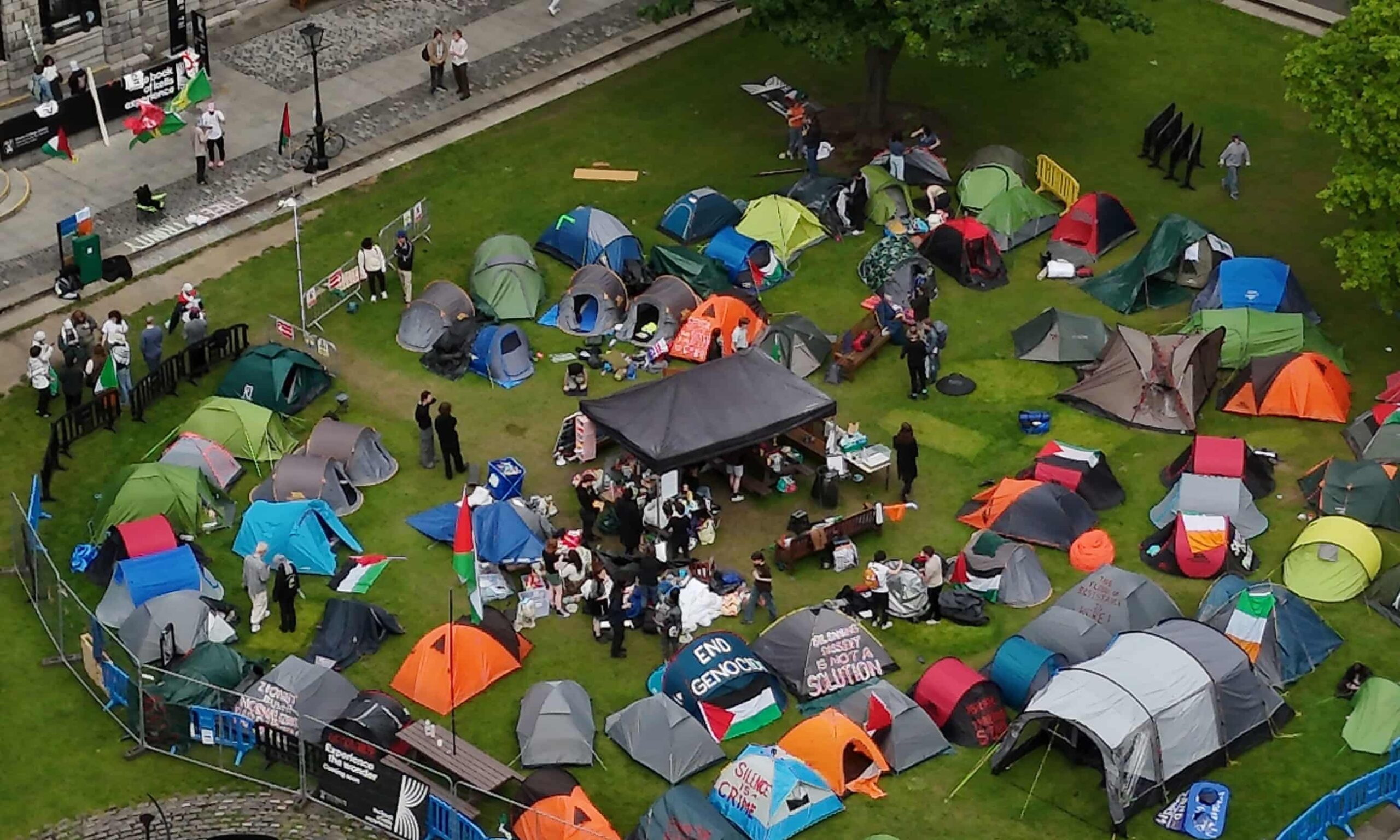
Last weekend, students from Trinity College, Dublin blockaded the library where the Book of Kells is on display and established an encampment of tents on the lawn in front of the Arts block.
They were protesting the fact that the university has investments in three firms that are blacklisted by the UN for their involvement in the illegal occupation of the West Bank. Such campaigns were hugely successful in the fight against South African apartheid and it is hoped that it can contribute to the end of the slaughter in Gaza. And calls to divest from unethical investment is near the heart of Christian thinking about money. And we should not forget that boycotting is, of course, a tradition first established by Irish people.
But lots of people had kneejerk opposition to this act of principled activism. The blockade was built from the benches that surround the lawn, that tend to bear plaques memorialising friends and alumni of the college that have passed away. Commentators dubbed it narcissistic to use memorials to make a political point. The defenders of the protestors responded that in the face of actual children being killed en masse, concerns about furniture do not appear morally serious.
Other insisted that the students would be embarrassed by their idealism in 20 years time. This is an interesting claim, because in reality, the historical record suggests that the embarrassment goes the other way. While today, no one doubts the ethical integrity and the positive consequences of the American civil rights campaign, at the time, there was widespread opposition to the astonishingly peaceful tactics. By 1966, 85% of white Americans thought that civil rights protests hindered the movement rather than advanced them. In that same year, almost 50% of Americans had a “highly unfavourable” view of Martin Luther King. Today, King has achieved a sort of secular sainthood and the American federal State has a holiday in his honour.
It turns out that 20 years after the civil rights protests, the people who were embarrassed were not those who marched but those who complained. They “memory-holed” their opposition and, by now, likely have forgotten entirely that they once thought Martin Luther King Jr was everything Americans should not be.
Non-violent protest has been core to Christian political theology since the very beginning. Opposition to the indiscriminate killing that war licenses ought to be a straightforward position shared by the baptised.
The protest in TCD was admirably peaceful and the protestors were articulate in their explanations. Within days, they prevailed. The benches are back in place, unharmed. The Book of Kells is back on display (presuming you have the money to buy a ticket!), and the war in Gaza continues. It is too much to ask a single protest movement to achieve everything. But it is noteworthy when young citizens rise up and demand a better way forward. The students were revolting, but that is not revolting! And the reactionary impulse that despises people with strongly held, peacefully expressed opinions is the one that, in the long run, generates embarrassment.

